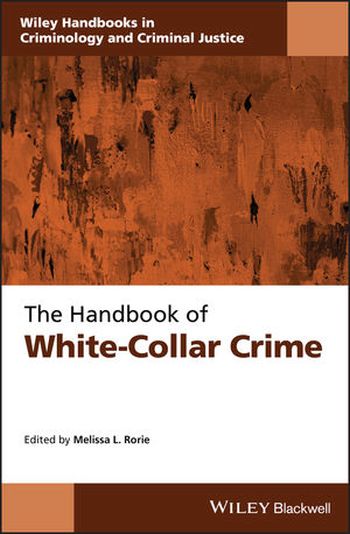
A comprehensive and state-of the-art overview from internationally-recognized experts on white-collar crime covering a broad range of topics from many perspectives.
Law enforcement professionals and criminal justice scholars have debated the most appropriate definition of “white-collar crime” ever since Edwin Sutherland first coined the phrase in his speech to the American Sociological Society in 1939. The conceptual ambiguity surrounding the term has challenged efforts to construct a body of science that meaningfully informs policy and theory. The Handbook of White-Collar Crime is a unique re-framing of traditional discussions that discusses common topics of white-collar crime—who the offenders are, who the victims are, how these crimes are punished, theoretical explanations—while exploring how the choice of one definition over another affects research and scholarship on the subject.
Providing a one-volume overview of research on white-collar crime, this book presents diverse perspectives from an international team of both established and newer scholars that review theory, policy, and empirical work on a broad range of topics. Chapters explore the extent and cost of white-collar crimes, individual- as well as organizational- and macro-level theories of crime, law enforcement roles in prevention and intervention, crimes in Africa and South America, the influence of technology and globalization, and more.
This important resource:
Accessible to readers at the undergraduate level, yet equally relevant for experienced practitioners, academics, and researchers, The Handbook of White-Collar Crime is an innovative, substantial contribution to contemporary scholarship in the field.